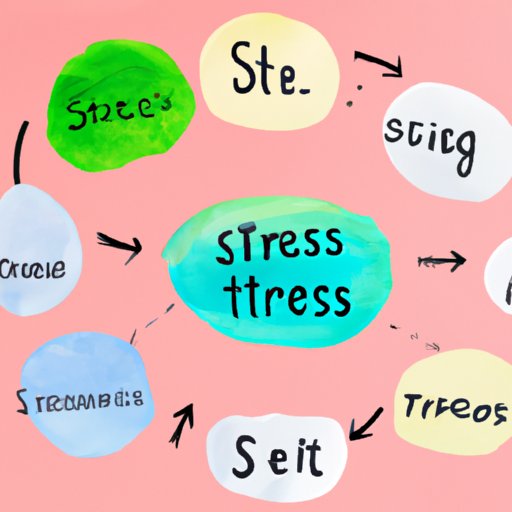
How to Manage Work Stress: Tips and Techniques
Work stress is a common phenomenon for many people. It can come from any unexpected deadline, huge workload and a lot of pressure to succeed. Moreover, it can affect your physical and mental health, as well as your work and personal relationships. Therefore, it is important to know how to manage work stress effectively. In this article, we will explore several tips and techniques to help you manage work stress and improve your work-life balance.
Prioritize and Plan Tasks
One of the most effective ways to manage work stress is to prioritize and plan tasks. This involves breaking down your workload and prioritizing tasks based on their importance. It is also critical to avoid multitasking and focus on one task at a time to stay calm and focused.
You can use a to-do list, an online planner or a project management tool to prioritize and plan your day. Start by identifying the most critical tasks and scheduling them at the beginning of the day when you are fresh and can work with full concentration. This approach will help you manage work stress by ensuring that you are using your time effectively.
Take Breaks
Regular breaks are essential when managing work stress. Taking time to clear your head and recharge your batteries can help you avoid burnout and maintain your productivity. It is recommended to take a break every one or two hours. You can take a walk, have a healthy snack, listen to music, or simply stretch your muscles to ease any tension.
Another important aspect of taking breaks is to remember that it is OK to take time off. Sometimes, the best way to manage work stress is to take a day or two off to rejuvenate. You may find that you return to work with renewed energy and a fresh perspective.
Connect with Colleagues
Socializing and building relationships with colleagues can help you manage work stress. Connecting with people who share your work experiences and interests can be a great way to improve your mood and give you a sense of support and belonging. This, in turn, can help you be more productive and positive at work.
You can start by engaging in casual conversation with your colleagues over lunch or coffee breaks. You may also consider joining a workplace group or club that interests you. This can be a great way to connect with people outside your department and build your network.
Engage in Regular Exercise
Regular physical activity is an excellent way to manage work stress. Exercise can help you reduce your cortisol levels and increase endorphins, leading to increased happiness and reduced stress. Moreover, exercise is an effective method to improve your mental health and reduce the symptoms of anxiety and depression.
You can incorporate exercise into your daily routine by taking a brisk walk during lunch, cycling or running before or after work, or joining a gym. If you find it challenging to set aside time for exercise, consider looking for ways to incorporate more physical activity into your daily routine, such as taking the stairs instead of the elevator or going for a walk rather than spending time on the phone or in chats.
Practice Mindfulness
In recent years, mindfulness has gained a lot of popularity in the management of work stress. Mindfulness is a form of meditation aimed at increasing focus and awareness. It can help you recognize and observe your thoughts and feelings without judging them. This process can help you distance yourself from stressful feelings and respond to situations with greater clarity and calmness.
You can practice mindfulness by doing breathing exercises, meditation or yoga. You may also consider using mindfulness apps or audiobooks to help you begin your practice. When you start feeling overwhelmed or stressed, take some time to engage in mindfulness techniques to find a sense of calm.
Learn to Say No
Saying no is an essential skill in managing work stress. It is important to set reasonable boundaries and avoid overcommitting yourself. You can say no politely and professionally by explaining that you do not have the bandwidth or resources to take on additional responsibilities. This approach can help you reduce work stress and allow you to focus on important priorities.
Effective communication is key when it comes to setting boundaries at work. Ensure that your manager and colleagues are aware of your expectations and capabilities. Be clear about your availability and ensure that your expectations align with the goals and priorities of the organization.
Take Care of Yourself
Self-care is critical when it comes to managing work stress. You should prioritize taking care of your physical and mental health by getting enough sleep, eating healthy and drinking plenty of water. You may also consider taking up a hobby or an activity you enjoy outside work to help you reduce stress and improve your mood.
You should also ensure that you have a supportive environment and positive social connections. This can range from finding someone to confide in, attending therapy or seeking counselling when necessary. It is important to prioritize your mental health and well-being, even during your busiest and stressful times at work.
Conclusion
Managing work stress is critical for your physical and mental health and overall productivity. In this article, we presented several tips and techniques to help you manage work stress effectively. By incorporating these techniques into your daily routine, you can lead a happier, healthier and more productive work life. Remember to prioritize and plan tasks, take regular breaks, connect with your colleagues, engage in regular exercise, practice mindfulness, learn to say no, and take care of yourself.




